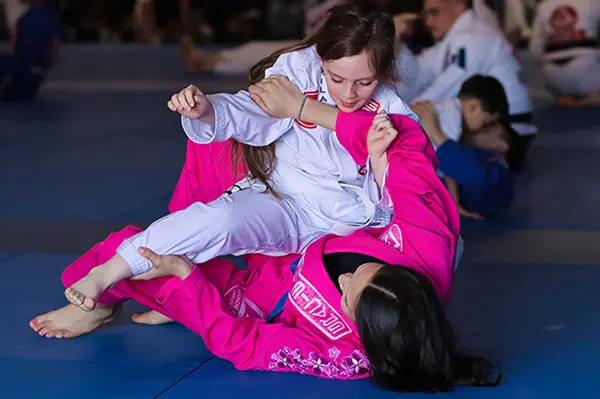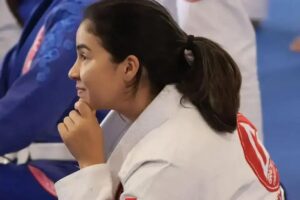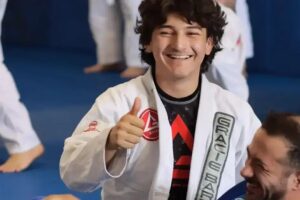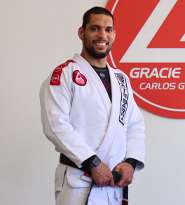Hello, I’m Seidler Rodrigo, Head Professor at Gracie Barra West Jordan. Choosing a martial art is a significant step, and I often see people weighing options like Brazilian Jiu-Jitsu (BJJ) – the martial art we practice here – and Karate. You might be asking: which one fits my life best? Is BJJ’s ground game the key, or is Karate’s striking more suitable? As someone dedicated to martial arts in our West Jordan community, I want to share my perspective to help you decide.
My aim here is to offer a clear comparison. We’ll look at the philosophies, techniques, histories, and practical aspects of both Jiu-Jitsu and Karate, addressing common questions I hear. Making an informed choice is vital, and I want to empower you.
At Gracie Barra West Jordan, my team and I focus on authentic BJJ, fostering a legacy of effectiveness within a supportive, family-like environment. While BJJ is my passion, I believe in providing honest information. This comparison examines both arts fairly, helping you choose the path—self-defense, fitness, or community—that aligns with your goals. Let’s explore BJJ versus Karate.
What are Brazilian Jiu-Jitsu and Karate?
Understanding their core differences is essential.
Brazilian Jiu-Jitsu (BJJ):
As I teach it, BJJ is a grappling art from Japanese Judo, refined by the Gracie family. Its power lies in using leverage and technique, not just strength, to control and submit opponents, especially on the ground. We work on the principle that many real fights end up close or grounded. BJJ provides the tools—positional control, leverage, joint locks, chokes—to manage these situations. A key part of our training is live sparring (“rolling”), which pressure-tests techniques realistically. This practical BJJ is what we offer at Gracie Barra West Jordan.
Karate:
Karate (“empty hand”) originated in Okinawa and focuses on striking—punches, kicks, blocks. It emphasizes power, speed, and focus (kime). Training involves Kihon (basics), Kata (forms), and Kumite (sparring). Styles like Shotokan exist, often stressing discipline and character. Karate typically aims to end fights quickly with strikes from a distance.
Key Differences & Similarities:
Simply put: Karate = striking/stand-up;
Jiu-Jitsu = grappling/ground.
Karate uses impact;
Jiu-Jitsu uses leverage.
Both demand discipline, boost fitness (strength, cardio, flexibility), use belt systems, and build mental toughness (focus, resilience, confidence).
Who Should Train?
Finding the right fit is personal.
Who Suits Brazilian Jiu-Jitsu?
BJJ’s focus on technique makes it incredibly inclusive.
- Body Type/Size: Less critical than in striking. Technique allows smaller individuals to manage larger ones.
- Age: We have programs for kids (coordination, confidence), adults (fitness, self-defense), and seniors (low-impact activity).
- Fitness: Start at any level! Fitness develops through training.
- Goals: Ideal for practical self-defense (especially ground), a challenging workout, competition, or a strong community – our GB Family.
Who Suits Karate?
Appeals to those valuing striking, structure, and tradition.
- Body Type/Size: Reach and power can be more advantageous.
- Age: Widely taught, though impact needs consideration for some.
- Fitness: Develops coordination, speed, power.
- Goals: Best for mastering striking, learning traditional forms, and structured discipline.
A Note on Age: Both benefit all ages. Karate’s forms build focus. Jiu-Jitsu offers practical anti-bullying control for kids. Adults find fitness in both; Jiu-Jitsu provides great stress relief and defense against larger opponents. For seniors, BJJ’s leverage focus is often gentler than striking.
When and Where?
History and accessibility provide context.
Historical Roots:
Karate solidified in Okinawa (early 20th C.), spreading globally later.
Brazilian Jiu-Jitsu developed in Brazil (mid-20th C.), gaining global fame more recently via MMA and the Gracie Barra network, which I proudly represent in West Jordan.
Finding Quality Instruction:
Quality varies. For Jiu-Jitsu, look for reputable affiliations. At Gracie Barra West Jordan, we offer a structured curriculum, certified instructors following Master Carlos Gracie Jr.’s methods, and a clean, safe environment. I always suggest visiting, watching a class, talking to us, and trying an introductory session. The atmosphere is important!
Best Time to Start? Now! Don’t wait for the “perfect” moment or fitness level. Starting is the first step. We welcome beginners year-round.
Why Choose One Over the Other?
Your personal motivation – your “why” – matters most.
The Ongoing Comparison:
People compare BJJ and Karate seeking the best path for self-defense, fitness, or discipline. Early MMA highlighted the importance of ground skills. It’s not about which is universally “better,” but which is better for you.
Why I Believe in BJJ for Realistic Self-Defense:
My belief comes from seeing Jiu-Jitsu work. Many fights end on the ground. Jiu-Jitsu provides a plan: control distance, takedown if needed, achieve dominant position, use leverage-based submissions. It works regardless of size. Our constant rolling makes these skills functional. This practicality is central to our training.
Why Others Might Choose Karate:
Karate offers a direct path to powerful striking. The discipline from forms and basics is significant. Its traditions also appeal to many.
Benefits Beyond Fighting:
Any good martial art offers huge rewards: physical fitness, mental toughness, boosted confidence, stress relief, and community. The support within our Gracie Barra West Jordan team is something special. It’s about growth.
How Do They Stack Up?
Let’s compare training, progress, and effectiveness.
Training Differences:
Our BJJ classes involve warm-ups, technique drilling, and lots of live rolling – where real learning happens. Karate often balances basics, forms, and sparring, focusing more on perfecting stand-up techniques.
Progression & Belts:
Both use belts. BJJ progression (White to Black) is earned via demonstrated skill in rolling. It’s a journey, often 8-12+ years to Black Belt. Karate progression often involves formal tests and can seem faster initially, but mastery still takes years.
Real-World Effectiveness:
Karate offers striking tools. Jiu-Jitsu offers tools to control the fight, especially on the ground where size matters less. For overall self-defense against an untrained attacker, I feel BJJ’s ground control offers a more complete solution.
Physical Demands:
Karate builds explosive power. Jiu-Jitsu builds endurance, functional strength (grip, core), and flexibility. Both provide excellent workouts.
How Much does it Cost?
Consider the practical investments.
Jiu-Jitsu Costs:
Expect monthly tuition (reflecting quality instruction like ours), a Gi (uniform), maybe No-Gi gear. View tuition as an investment in yourself – skills, health, community.
Karate Costs:
Similar structure – tuition, uniform (often cheaper), possibly sparring gear, often belt test fees.
Time Commitment:
Consistency is key. For Jiu-Jitsu progress, I recommend 2-3 classes/week minimum (60-90 min each). Regular attendance pays off. It’s a marathon, be patient.
Finding Your Path Here in West Jordan
Ultimately, the choice between Jiu-Jitsu and Karate is personal. Karate offers a strong path in striking and tradition. Brazilian Jiu-Jitsu, the art I teach, provides an incredibly effective system for ground control, leverage-based self-defense, and building resilience.
If you seek realistic self-defense, a profound physical and mental challenge, and want to join a supportive, motivating community – our Gracie Barra family – then I truly believe BJJ is an outstanding choice.
My invitation is simple: come experience it. Visit us at Gracie Barra West Jordan. Meet me and my team, watch a class, feel the positive energy. Book a FREE trial class. Discover the confidence, fitness, and friendships waiting for you. Your journey starts when you take that first step.
I look forward to seeing you on the mats!





